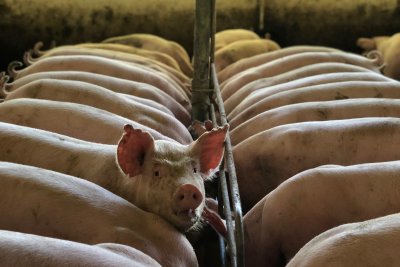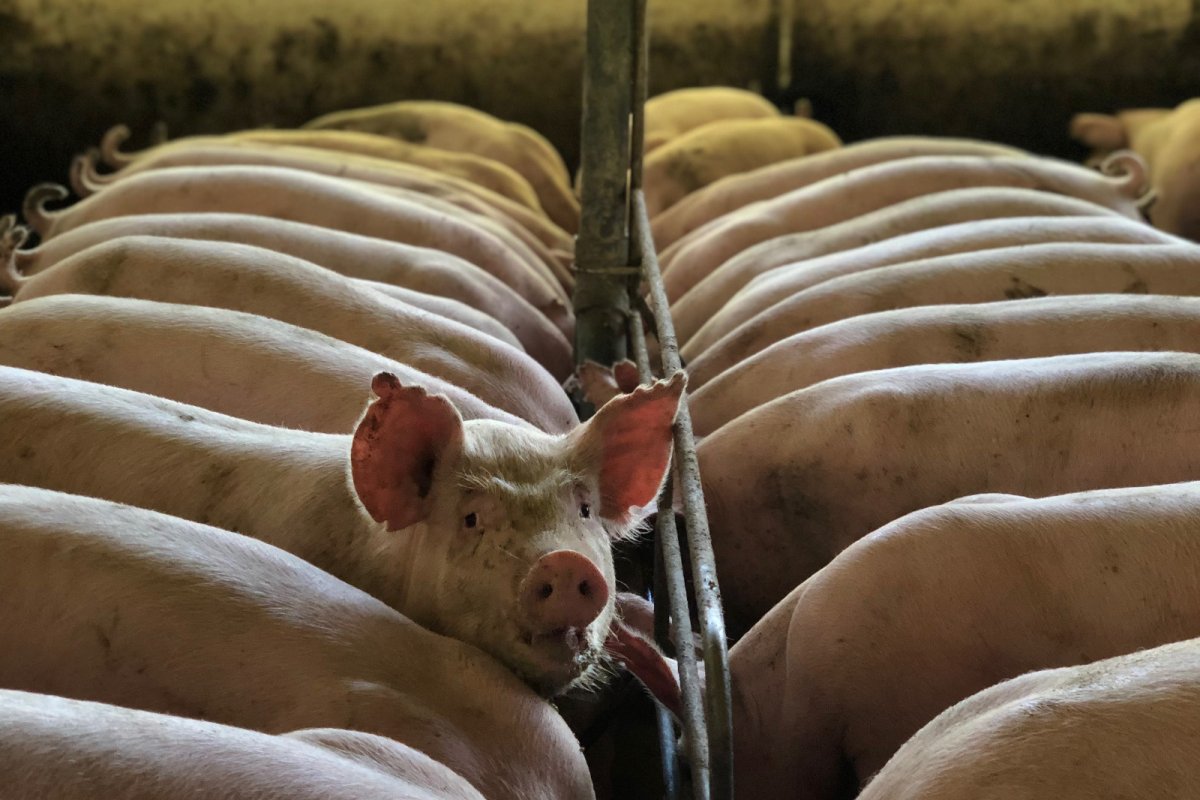 Factory farmed pigs. Credit: Barbara Barbosa, Pexels
Factory farmed pigs. Credit: Barbara Barbosa, Pexels
We are milking the planet like there is no tomorrow
Unhealthy diets, including excessive amounts of meat and dairy foods, are increasingly linked to climate breakdown and the collapse of nature. On Earth Day, we reflect on how healthier menus in schools and public spaces can help Europe address these challenges.
The 22 April is Earth Day – a day as good as any to contemplate our glorious, battered and finite home. It also roughly marks the date by which humanity would have exhausted the planetary budget for the year if all lived their lives like Europeans.
Nature’s all-in buffet cleared and plates licked barely five months into the year! Up to the early 1970s, our planet was able to provide more than what humanity demanded. Since then, consumption rates have increased and now massively exceed the Earth’s rate of renewal.
The type of food we eat contributes to this enormous overshoot. The WWF reports that the EU’s use of forest products, grazing and cropland make up 34 percent of its total ecological footprint. Similarly, the latest IPCC report warned that food contributes more than a third of global greenhouse gas emissions and is responsible for 80 percent of tropical deforestation.
Changing our diets and supporting better farming is therefore one of the most straightforward ways to tackle climate breakdown and restore nature. Governments must use their power to make healthy and sustainable food more available and affordable, because simply educating people about changing diets will not work, the IPCC report warned.
The biggest problem is the amount of meat and milk products we consume. Europe’s consumption of meat is twice the global average, and three times the global average for dairy consumption. In the EU, nearly two thirds of the cereal harvest is fed to animals, only one third is used for human consumption and 3 percent are used for biofuels. In addition, Europe’s livestock sector massively depends on feed imports from countries like Brazil. This feed production drives deforestation, biodiversity loss, pollution, pesticide and water use and occupies cropland that could better be used to produce plant-based foods for humans.
Scientists have recently proposed targets for healthy diets and sustainable food systems that protect the planet. They emphasize that it is possible to feed a growing population without harming the planet, but only through an unprecedented global transformation of the food system. This includes a significant reduction of animal source foods in regions where these are overconsumed, such as Europe.
Contrary to the big farming lobby’s doctrine of agricultural intensification, it is necessary to reduce the impact of farming on nature. A resilient food system builds on seasonal, locally sourced food, organic and small-scale production focused on human consumption.
Each of us benefits from a diet that is richer in fruits, vegetable and plant-based proteins from pulses and nuts. It is healthier for us and the planet. However, in reality, we have comparatively little control over our food choices. The biggest responsibility in changing our food environment − i.e. the way we access and interact with food and inform our food choices − lies with the government and retail sector.
Public food policies and food procurement for school and canteen meals can incentivise and support healthier diets, including more organic dishes and less but better meat. In fact, every cent spent on public food procurement is an investment into the urban and rural social fabric and will increase social equity and resilience, supporting the fight against world hunger.
Stay involved and be part of the transformation of food and farming systems in Europe:
Join the Buy Better Food campaign or become part of the Healthy Food Healthy Planet movement. If you are a council, you can log and measure the impact of policies to reduce emissions from food in the Every Mouthful Counts toolkit
Climate Change and Nature: Sustain has taken a keen interest in the rapidly accumulating evidence about the effect of food and farming on climate change and nature, as scientific evidence emerges that our food system is a very significant contributor to greenhouse gas emissions and biodiversity loss.
Sustain
The Green House
244-254 Cambridge Heath Road
London E2 9DA
020 3559 6777
sustain@sustainweb.org
Sustain advocates food and agriculture policies and practices that enhance the health and welfare of people and animals, improve the working and living environment, promote equity and enrich society and culture.
© Sustain 2024
Registered charity (no. 1018643)
Data privacy & cookies








